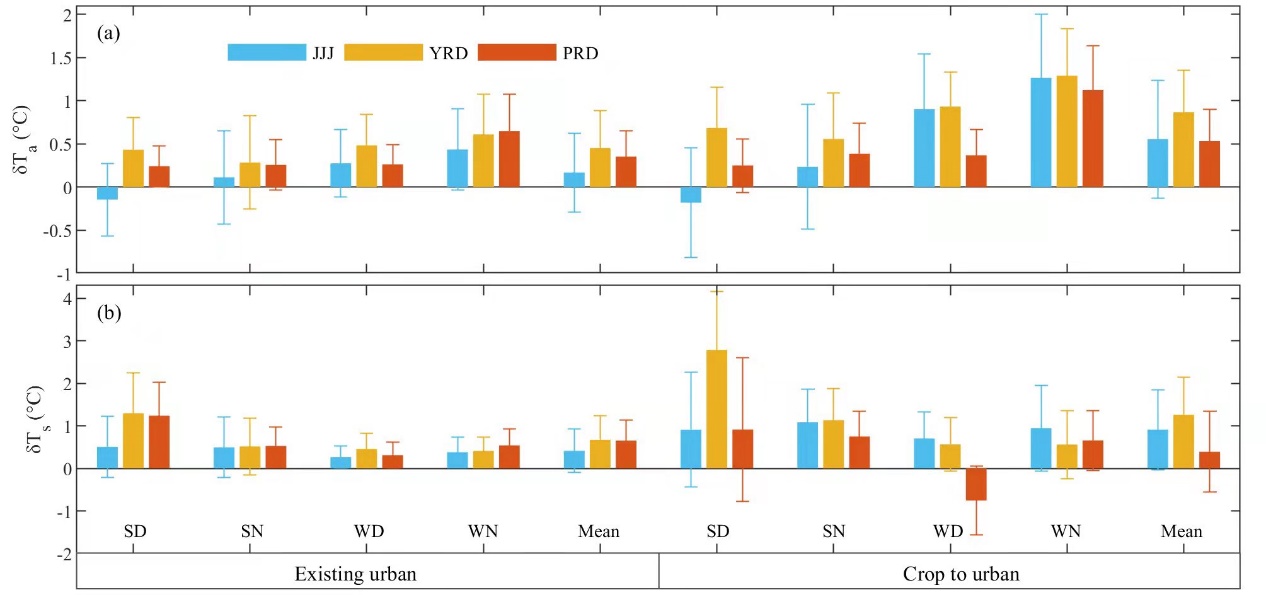

近日,我院应用气象硕士研究生闫章美在《Agricultural and Forest Meteorology》(中科院一区,Top期刊)上发表题为“Rural agriculture largely reduces the urban heating effects in China: A tale of the three most developed urban agglomerations.”的研究论文,周德成副教授为通讯作者。
城市热岛(UHI)效应虽然得到了广泛而深入的研究,但已有研究主要集中在城市透水面的增温效应和蓝绿基础设施的降温潜力,忽视了城市周围农业用地通过平流和大气反馈对城市气候可能产生的影响。该研究基于WRF模式,探讨了我国三大城市群地区(京津冀,长三角,珠三角)农田对夏季和冬季UHI效应的潜在影响及其机制。研究发现城市用地的独立增温效应明显,但其1/3~2/3的热岛效应被农田引发的降温效应所抵消(图1)。研究还发现,农田对UHI的调控作用主要取决于农业与城市用地的耦合气候效应,其耦合效应是农田独立气候效应的2.0~8.7倍(图1)。因此,快速城市化导致农田损失不仅增大UHI影响的空间范围,而且明显加剧了老城区的UHI强度(图2)。

图1 不同土地利用情景下城市和农业用地对城市大气(左)和地表(右)温度的影响. SD, SN, WD和SN分别表示夏季白天,夏季夜晚,冬季白天和冬季夜晚

图2 2000~2020年农田转化为城市用地对城市热效应的影响
该项研究是前期基于遥感方法对比研究城市和农业用地热环境效应(成果发表在一区Top期刊Science of The Total Environment上)的延续。遥感观测证据和模式模拟结果均强调了城郊农业活动在减缓城市高温热浪风险中的巨大潜力。
论文信息:
Yan, Z., Zhou, D. (2023). Rural agriculture largely reduces the urban heating effects in China: A tale of the three most developed urban agglomerations. Agricultural and Forest Meteorology, 331, 109343.
Yan, Z., Zhou, D., Li, Y., Zhang, L. (2022). An integrated assessment on the warming effects of urbanization and agriculture in highly developed urban agglomerations of China. Science of The Total Environment, 150119.